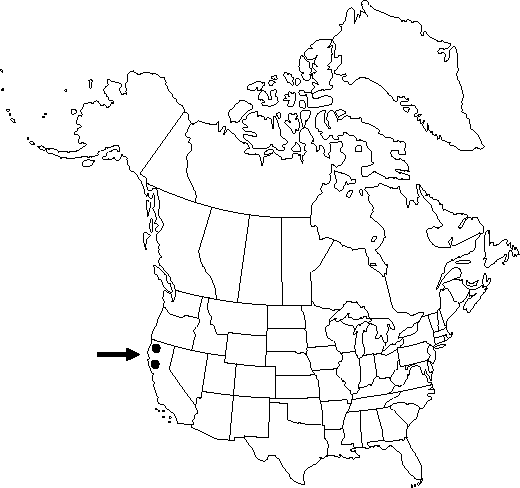Delphinium antoninum
Leafl. W. Bot. 3: 126. 1942.
Stems (7-)15-30(-60) cm; base reddish, glabrous to puberulent. Leaves mostly on proximal 1/3 of stem; basal leaves 3-12 at anthesis; cauline leaves 3-5 at anthesis; petiole 2-12 cm. Leaf blade round, 0.8-4 × 1.2-8 cm, ± succulent, nearly glabrous; ultimate lobes 3-15, width 1-8 mm (basal), 1-4 mm (cauline). Inflorescences 3-25-flowered; pedicel (0.6-)1.2-3.2 cm, usually puberulent; bracteoles 4-6 mm from flowers, green, linear, 3-5 mm, puberulent. Flowers: sepals dark blue to white, nearly glabrous, lateral sepals spreading to reflexed, 11-13 × 4-6 mm, spurs straight to gently decurved, within 30° above or below horizontal, 12-16 mm; lower petal blades elevated, exposing stamens, 3-7 mm, clefts 1.5-3 mm; hairs centered, mostly on inner lobes above base of cleft, white. Fruits 14-22 mm, 3.5-4 times longer than wide, puberulent. Seeds unwinged; seed coat cells with surfaces smooth.
Phenology: Flowering late spring–early summer.
Habitat: Uncommon on moist talus slopes
Elevation: 1100-2700 m
Distribution

Calif.
Discussion
Of conservation concern.
Delphinium antoninum hybridizes with D. decorum subsp. tracyi and with D. nudicaule. Most often confused with D. decorum subsp. tracyi, it is separable on the basis of its longer root, usually reflexed sepals, and typically colorfast flowers. It also may be confused with D. andersonii; see discussion under that species.
Selected References
None.